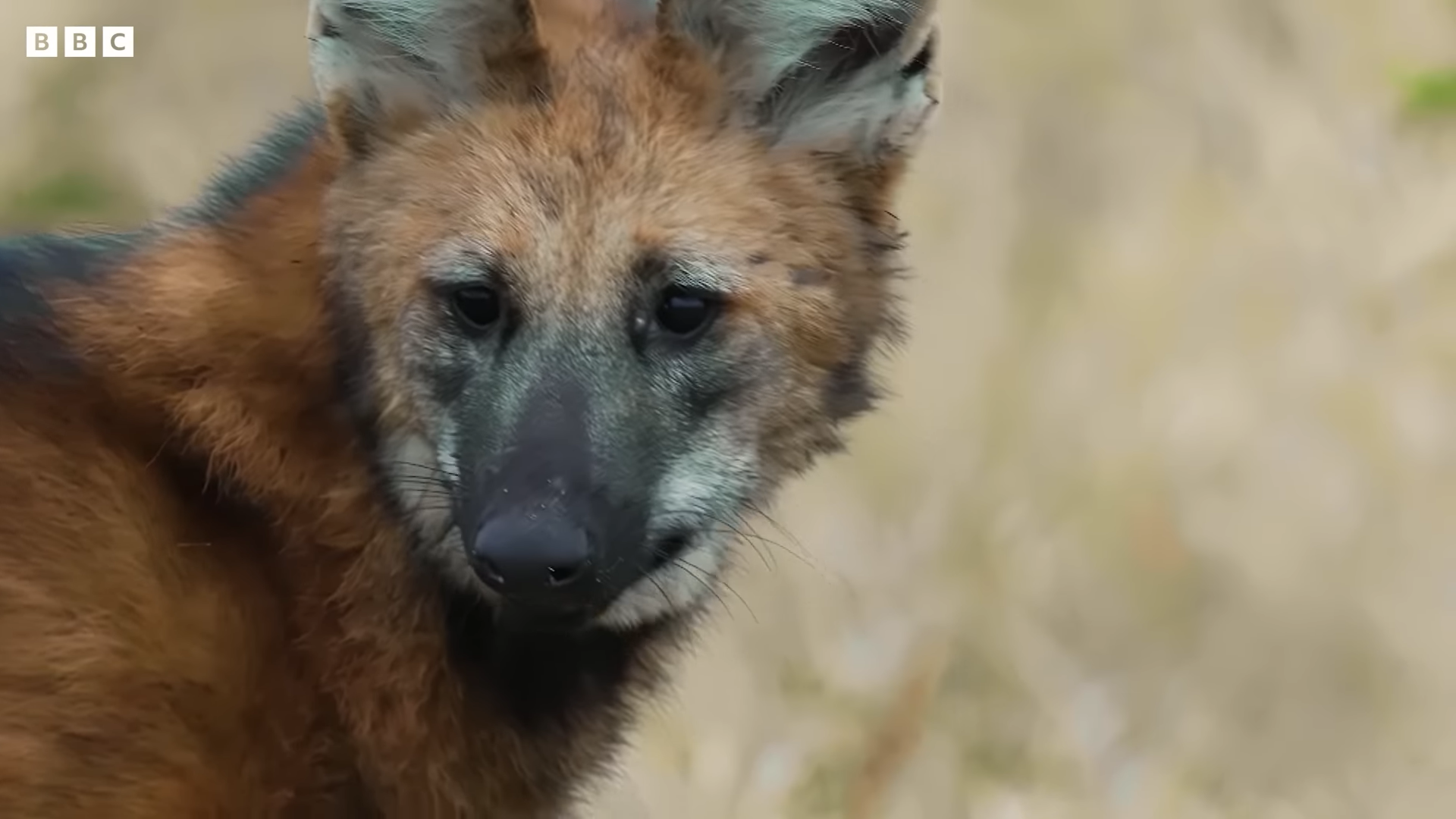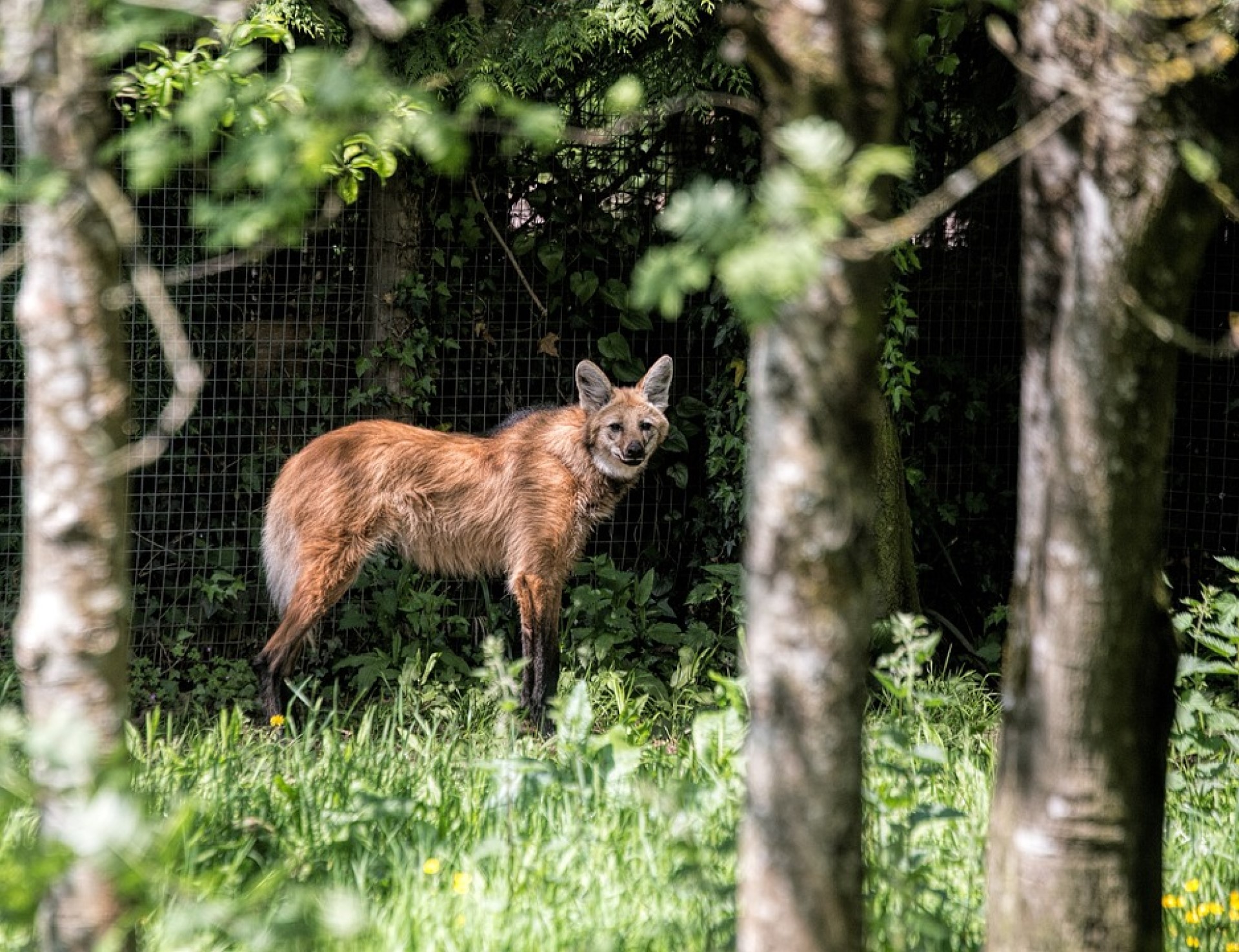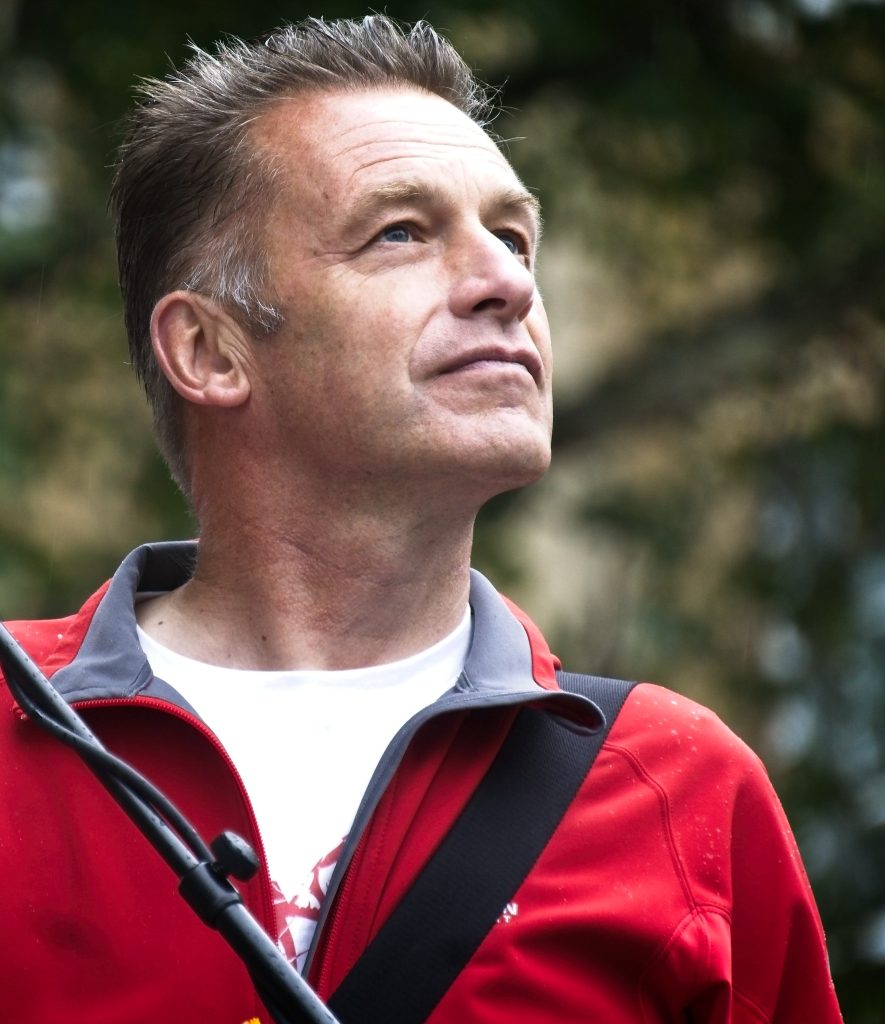
For those watching this amazing series, you will have see the beautiful animal – looking rather like a fox on stilts, the maned wolf is a species that lives on the plains of the cerrado in South America. It is unfortunately greatly under threat. Time will tell what will happen in the future.
These animals are heavily under threat, and as such, it is essential that locals see them as a benefit. This means that tourism to this region will help their long-term future.
It is a particularly difficult issue for those who are concerned, because while we want to cut our carbon emissions, we must also find a way for enough people to visit, to warrant their long term protection.
We have a page for the maned wolf, and we have embeded a video from a bbc wildlife documentary on this species from a few years ago (though you can also watch a good clip of it from planet earth 3 episode 3)
Click here to visit the page.



